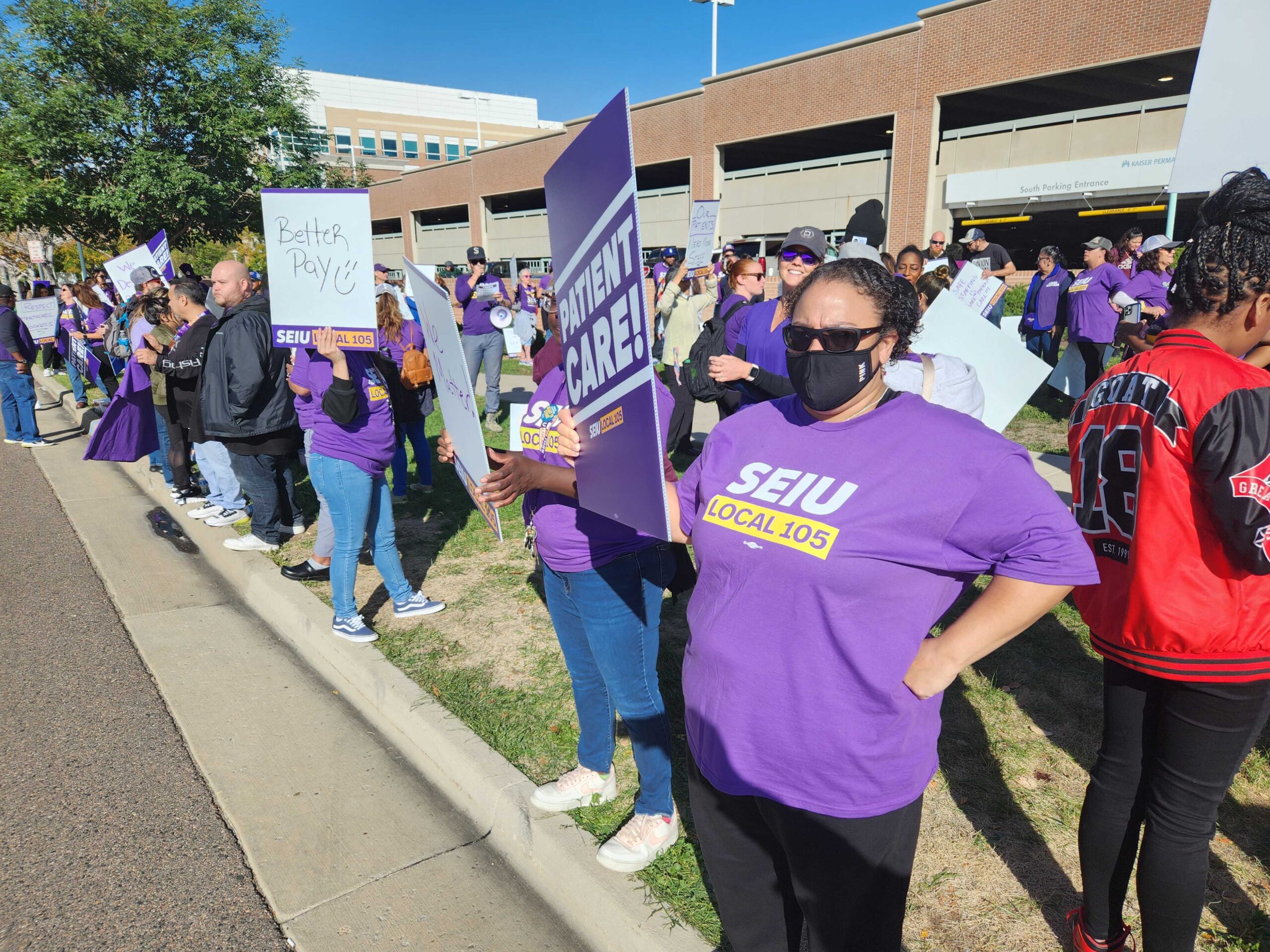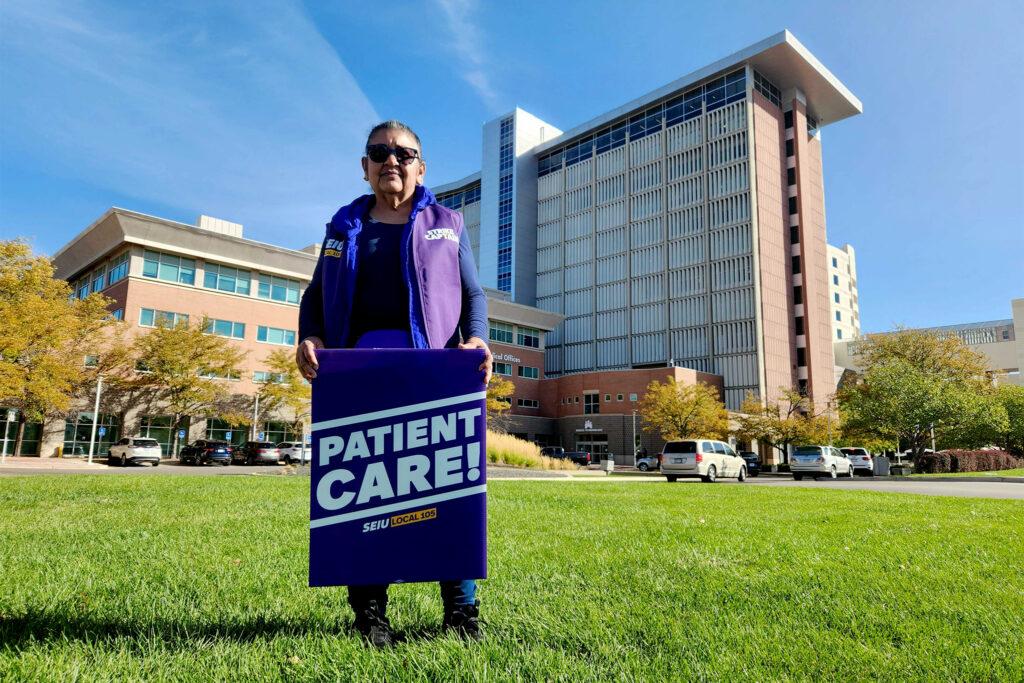
Thousands of Kaiser Permanente healthcare workers in Colorado walked off the job on Wednesday in the midst of slow-going contract negotiations between their union and employer.
Picket lines formed in front of 30 clinic locations along the Front Range, including Denver, Colorado Springs and Pueblo. The action disrupted appointments for some patients and coincided with a larger three-day national strike against the nonprofit health system.
Strikers have a wide range of job titles, including nurses, pharmacy technicians and patient transporters, among others. The union – Service Employees International Local 105 – said negotiations over wage increases and understaffing solutions remained key sticking points.
“We’re stressed out,” said Lupe Azua, who transports patients in wheelchairs between floors of Kaiser’s Franklin Medical Offices in Denver for $24 an hour. “There's people that are starting to get second jobs because they can't afford it in Colorado.”
For months, the two sides remained far apart on a number of policies proposed for the multi-year contract. Colorado workers voted overwhelmingly to authorize a strike on Sept. 1. The last contract expired on Sept. 30.
Kaiser representatives said they put offers on the table that included wage increases for union members of 12.5 percent over four years, including a $21 minimum wage in Colorado. Union leaders rejected that proposal and pushed for double that increase, which Kaiser argued was unsustainable.
“Our goal is to reach a fair and equitable agreement that strengthens Kaiser Permanente as a best place to work and ensures that the high-quality care our members expect from us remains affordable and easy to access,” the health system said in a statement.
Throughout the negotiations, union leaders filed multiple allegations of unfair labor practices against Kaiser, claiming that the health system’s representatives failed to show up to meetings and withheld financial information. Kaiser has denied the allegations.
Addressing burnout and understaffing issues were also at the center of talks, according to SEIU Local 105. Many departments have been running short-staffed since before the pandemic, said Stephanie Felix-Sowy, the Colorado chapter’s president.
“I would say the frustration for frontline health care workers is different than in the past,” she said. “Coming out of a global pandemic and record inflation, things need to change and Kaiser has not addressed that.”
Kaiser acknowledged that a national healthcare worker shortage had hurt its operations, but said it had successfully hired more than 50,000 frontline employees nationally over the past two years, including nearly 10,000 union jobs this year.
Despite that, union membership has fallen overall in recent years due to an exodus of burned-out workers and people transferring departments, Felix-Sowy said.
“We don't know how many of those hires have been specifically in Colorado,” Felix-Sowy said. “We don't have a breakdown of what positions they are.”
Strikers on the picket line Wednesday said they felt frustrated about burnout and a lack of fair compensation.
Azua, the 62-year-old patient transporter, started her job with Kaiser a year and a half ago, wheeling patients throughout the Franklin Medical Offices. When she started her job, she had a colleague who helped split the work. But that person left soon after, and managers haven’t hired a replacement, Azua said.

“Now it’s just me and it’s hard,” she said. “Sometimes I keep getting called and called and I can’t help because I can’t do the whole building myself.”
She worries patient care has suffered as a result of staff exhaustion.
“Everybody is really stressed because it’s the same thing all over,” she said.
Prior to Wednesday, Kaiser said it would take measures to keep its facilities up and running for patients during the three-day strike.
Managers reached out directly to patients to reschedule some appointments. In a message to members, Kaiser said its on-call services may experience longer than usual wait times.
The system also hired contract workers to ensure essential services remained open for members. Pharmacies, flu and COVID-19 vaccine clinics remained ongoing.
Outside of the Franklin Medical Office in Denver on Wednesday, many patients crossed the picket line for appointments. Aurora resident John-Claude Futrell had a follow-up surgery appointment for his ruptured achilles that he couldn’t miss.
As he wheeled his way into the clinic, he looked at the picket line and said he’d been happy with his level of care at Kaiser.
“We have to take care of those that take care of us,” Futrell said. “These are people that take care of us, and if we're not taking care of them, then who are we?”









